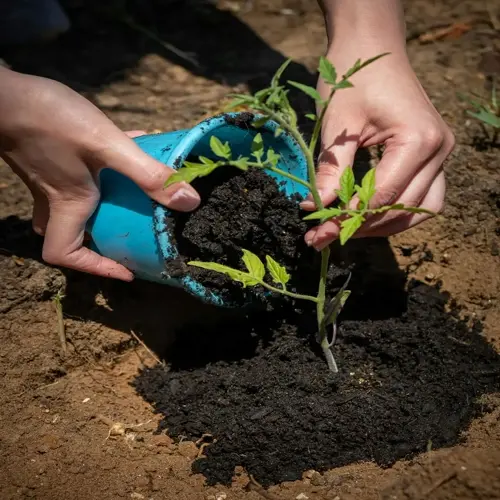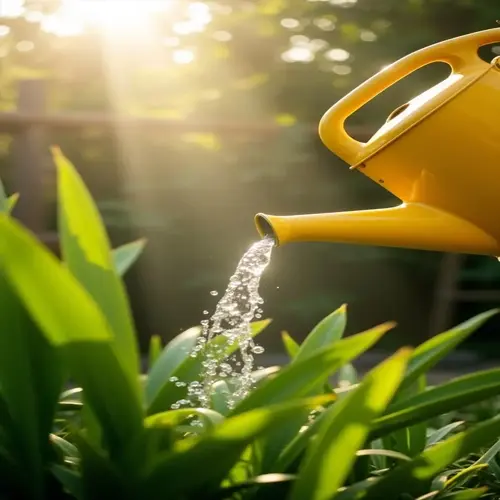How to distinguish overwatering from underwatering?

Written by
Julia Anderson
Reviewed by
Prof. Charles Hartman, Ph.D.It's easy to misdiagnose overwatering for underwatering and vice versa, and therefore treat plants improperly. Overwatered plants have mushy, yellow leaves and a very soggy feel to them. In contrast, underwatered plants often have dry soil and crispy leaves. My peace lily almost died because I erroneously treated the underwatering for overwatering and learned to investigate more closely.
Soil and Root Clues
- Overwatered: Soggy soil, foul root odor, dark slimy roots
- Underwatered: Cracked soil pulling from pot, brittle roots
- Test moisture 2 inches deep with your finger
Leaf and Stem Symptoms
- Overwatered: Mushy yellow leaves, soft collapsing stems
- Underwatered: Crispy yellow leaves, drooping stems
- Check if yellowing starts at top (underwatered) or bottom (overwatered)
Plant Behavior
- Overwatered: Slow decline with persistent wetness
- Underwatered: Rapid drooping after missed watering
- Note recovery after watering: underwatered plants perk up
You can confirm your diagnosis with basic tests. For suspected overwatering, unpot the plant and assess the roots. Healthy roots should be white and plump, while you'll see intact but dry roots with underwatering. I was quick to confirm that dehydration had occurred when my spider plant perked back up after being watered from the bottom.
Adapt watering according to plant type; tropical plants require consistent moisture, while succulents prefer to dry out between waterings. Use moisture meters for accuracy. Group plants with similar needs together. I keep my ferns far away from my cacti, so I don't accidentally over-water them.
Avoid complications going forward through smart habits. Water when the topsoil dries out. Use pots with drainage holes. Pay attention to seasonal changes: plants need less water in winter time. Ever since I began tracking with a calendar, my plants have grown consistently healthy year-round without the usually yellowing confusion!
Read the full article: 10 Reasons Why Leaves Turn Yellow

